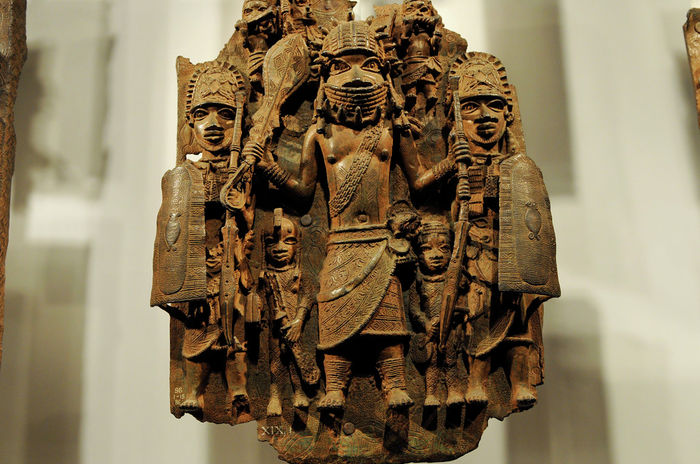Trinity returns aboriginal spears after thirty year campaign
The College held a repatriation ceremony on Tuesday with the La Perouse and Gweagal communities

Trinity College returned four spears to Aboriginal communities at a ceremony this Tuesday (23/04), following a three-decade campaign for their return.
The spears were returned to the La Perouse and Gweagal communities in a formal repatriation ceremony at Trinity’s Wren Library, being handed over to descendants of the indigenous community that crafted them.
The College had previously rejected a repatriation request over concerns about housing and conserving the spears. The Gweagal community, whose ancestors crafted some of the spears, had been campaigning for 30 years for their repatriation.
James Cook and Joseph Banks originally seized 40 spears from local villages in April 1770 on their first voyage to Australia. These were then given to Lord Sandwich, First Lord of the Admiralty, who gifted 4 spears to Trinity College, in 1771.
The Museum of Archaeology and Anthropology (MAA) had possessed the spears since 1914, except for a brief return to Canberra in 2015 and 2020 for exhibitions at the National Museum of Australia.
The ceremony culminated years of conversations between the MAA and the Aboriginal communities. It was attended by members of the two communities, including descendants of those from whom Cook and Banks took the spears.
The La Perouse made a formal repatriation request to Trinity College in December 2022 following years of campaigning. Trinity College agreed to this in March 2023 and then solicited the Charity Commission for the transfer of legal title.
The spears will be on loan to the Chau Chak Wing Museum at the University of Sydney whilst a visitor centre is built in Kurnell, Kamay.
Noeleen Timbery, Chairperson of the La Perouse Local Aboriginal Land Council, described the spears as a “connection to our past, our traditions, and cultural practices”.
 Comment / Cambridge students are too opinionated 21 April 2025
Comment / Cambridge students are too opinionated 21 April 2025 Comment / Does the AI revolution render coursework obsolete?23 April 2025
Comment / Does the AI revolution render coursework obsolete?23 April 2025 Comment / Cambridge’s tourism risks commodifying students18 April 2025
Comment / Cambridge’s tourism risks commodifying students18 April 2025 News / News in brief: campaigning and drinking20 April 2025
News / News in brief: campaigning and drinking20 April 2025 Interviews / Meet the Chaplain who’s working to make Cambridge a university of sanctuary for refugees20 April 2025
Interviews / Meet the Chaplain who’s working to make Cambridge a university of sanctuary for refugees20 April 2025






